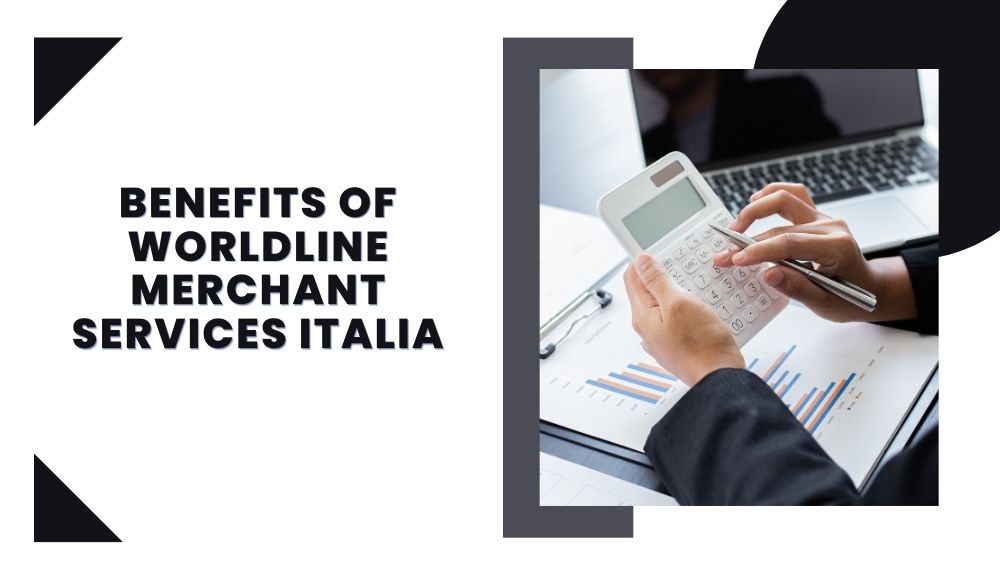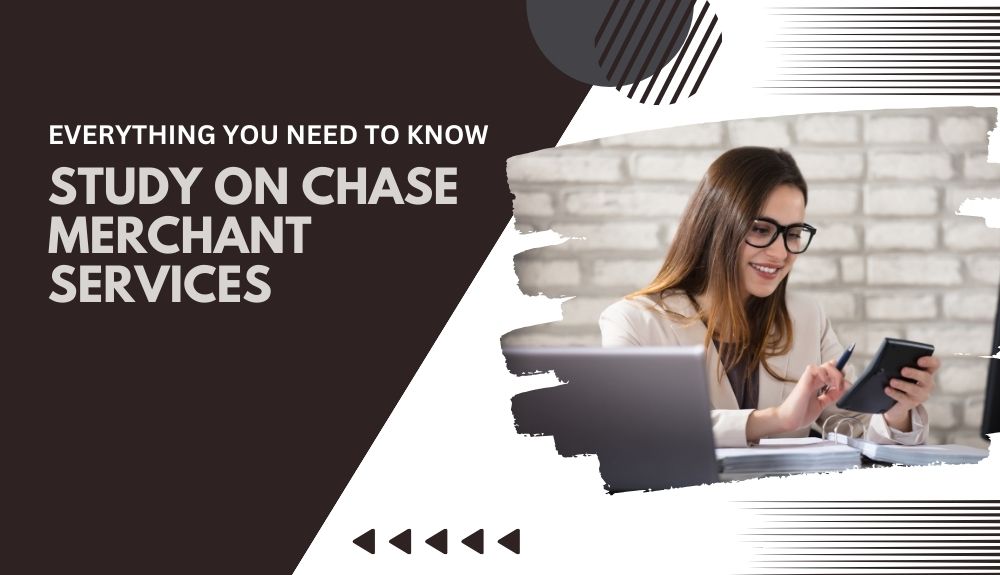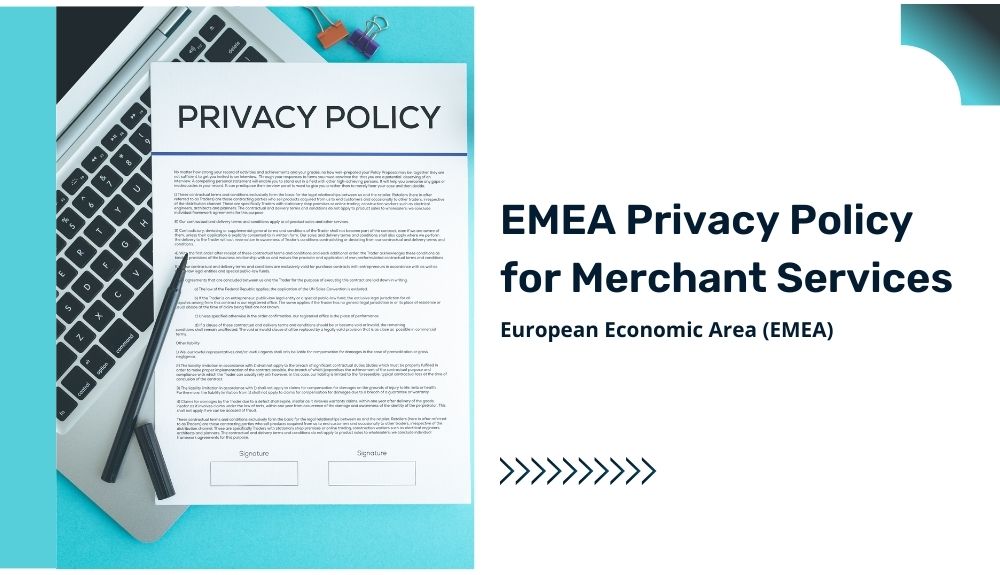Best Merchant Accounts for Bad Credit
Don’t let bad credit hinder your business’s success. Are you tired of facing rejections from traditional merchant account providers due to your less-than-perfect credit? It’s time to explore the best merchant accounts tailored specifically for businesses with bad credit.
Merchant accounts are essential for businesses to accept credit card payments and expand their customer base. However, bad credit can often be a roadblock in obtaining a traditional merchant account. That’s where specialized merchant account providers for bad credit come in, offering solutions to businesses with higher risk profiles.
In this blog, we will dive into the world of merchant accounts for bad credit, providing you with an in-depth overview of the top providers, their approval process, benefits, and limitations. We’ll also discuss tips for improving your creditworthiness and securing a merchant account in the future.
Don’t let bad credit hold your business back any longer. Join us as we explore the best merchant account options that can help you overcome financial hurdles and take your business to new heights.
Introduction
Businesses with bad credit often face challenges when trying to obtain a merchant account. Traditional providers may deny their applications, making it difficult to accept credit card payments and limiting their growth potential. However, there are merchant account providers that specialize in working with businesses with less-than-perfect credit. These providers understand the unique needs of such businesses and offer tailored solutions to help them accept electronic payments.
One of the main challenges for businesses with bad credit is finding a provider that is willing to take on the perceived risk associated with their credit history. Many merchant account providers rely heavily on credit checks to assess the creditworthiness of a business. This can result in rejections for businesses with poor credit scores or a history of financial difficulties.
It is crucial for businesses with bad credit to find the right merchant account provider that considers their circumstances and provides solutions that align with their needs. By partnering with a provider that specializes in working with businesses in the high-risk category, these businesses can access the payment processing services they require to thrive.
What is a Bad Credit Merchant Account?
A bad credit merchant account is a specific type of merchant account designed for businesses with less-than-perfect credit history. It is a lifeline for businesses that may have faced financial challenges in the past, allowing them to accept credit and debit card payments from their customers. While traditional merchant account providers may consider businesses with bad credit as high-risk, bad credit merchant account providers specialize in serving these businesses and understand their unique needs.
To be eligible for a bad credit merchant account, providers consider various criteria. While each provider may have slightly different standards, common factors include the business owner’s credit history, the overall financial health of the business, and the level of risk associated with the industry in which the business operates.
These specialized merchant account providers recognize that bad credit does not necessarily reflect the success or potential of a business. They focus more on the current financial stability of the business and its ability to process payments. By considering these factors, they can offer businesses with bad credit access to the payment processing services they need to grow and succeed.
Having a bad credit merchant account is necessary for businesses with less-than-perfect credit history as it enables them to accept credit card payments, which are central to the success of any business in today’s digital economy. By offering multiple payment options, businesses can attract a larger customer base, improve cash flow, and enhance customer satisfaction.
Overall, bad credit merchant accounts provide businesses with the opportunity to overcome their financial setbacks and continue to thrive by accepting credit and debit card payments, regardless of their credit history.
Benefits of Bad Credit Merchant Accounts
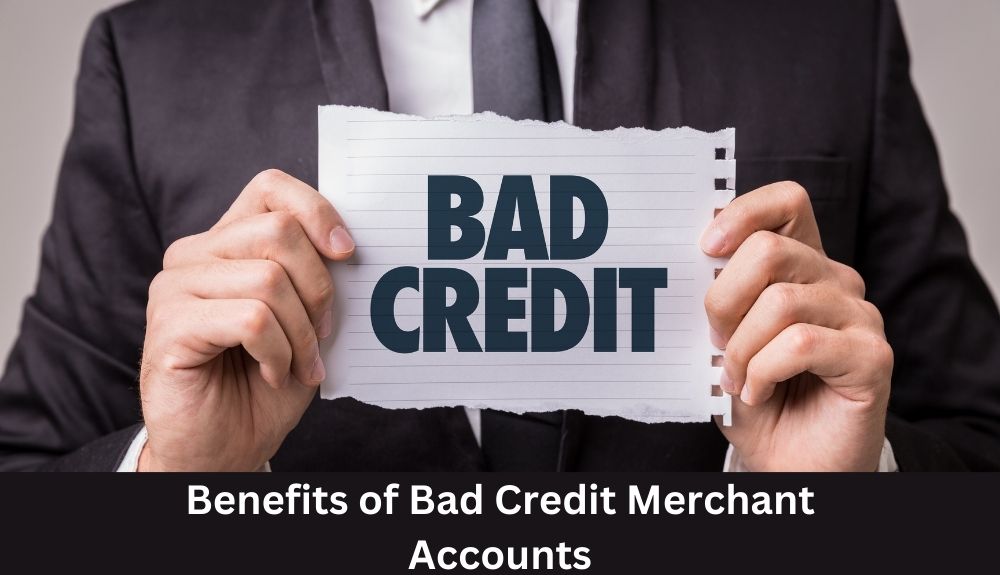
Obtaining a merchant account for your business, especially if you have a bad credit history, can significantly benefit your operations and financial stability. Here are some advantages of having a bad credit merchant account that cater specifically to businesses with less-than-perfect credit:
1. Expanding Payment Options: With a bad credit merchant account, you can accept credit card payments from your customers. This allows you to tap into a wider customer base and provide a convenient payment method that many consumers prefer.
2. Improving Cash Flow: Accepting credit card payments enables you to receive payments faster, reducing the dependency on checks or delayed payments. This improved cash flow can contribute to better liquidity in your business and help meet operational expenses more efficiently.
3. Increasing Customer Satisfaction: By offering multiple payment options, including credit cards, you enhance the convenience and satisfaction of your customers. This can lead to repeat business, increased customer loyalty, and positive word-of-mouth referrals.
4. Payment Solutions: Some bad credit merchant account providers offer additional payment solutions, such as virtual terminals or mobile payment options. These solutions can further streamline and optimize your business’s payment processes, providing ease of use for both you and your customers.
5. Opportunity for Rebuilding Credit: Successfully managing your bad credit merchant account and making consistent payments can contribute to rebuilding your credit history. As you demonstrate responsible financial behavior through your merchant account, it can positively impact your overall creditworthiness.
Remember, when choosing a bad credit merchant account provider, it’s essential to consider their fees, customer support, reliability, and compatibility with your business needs. By finding the right provider, you can unlock these benefits and overcome the challenges associated with bad credit to grow your business.
How to Get Approved for a Merchant Account with Bad Credit
When your business has bad credit, obtaining a merchant account may seem like a daunting task. However, there are practical strategies you can implement to increase your chances of approval. By providing supporting documentation and building solid business relationships, you can demonstrate your credibility and mitigate the risk associated with your bad credit history.
Gather Supporting Documentation
To strengthen your case for approval, gather and prepare the following documents:
1. Bank Statements: Present your business’s recent bank statements to show consistent cash flow and financial stability.
2. Financial Statements: Prepare income statements, balance sheets, and profit and loss statements to showcase the overall health and profitability of your business.
3. Business Plan: Develop a comprehensive business plan that outlines your strategy, target market, and growth projections. This demonstrates a forward-thinking approach and long-term vision for your business.
4. Trade References: Provide references from vendors, suppliers, or other business partners who can vouch for your reliability and prompt payment history.
5. Personal Guarantees: Consider offering a personal guarantee, assuring the merchant account provider that you will be personally responsible for any outstanding debts or liabilities.
Build Strong Business Relationships
In addition to providing documentation, establishing solid relationships can significantly enhance your chances of approval:
1. Communicate with Potential Providers: Reach out to merchant account providers that specialize in working with businesses with bad credit. Discuss your situation openly and address any concerns they may have.
2. Seek Recommendations: Consult your network or industry associations for recommendations on reputable merchant account providers that have a history of serving businesses similar to yours.
3. Start Small and Prove Yourself: Consider starting with a trial period or lower credit limits to prove your business’s ability to handle transactions responsibly. As you demonstrate reliable payment processing, you may be eligible for higher credit limits and better terms.
Remember, while bad credit may pose challenges, it doesn’t have to be an insurmountable obstacle. By providing supporting documentation and building strong business relationships, you can increase the likelihood of obtaining a merchant account that meets your needs and allows your business to accept credit card payments.
Bad Credit vs. High Risk Merchant Accounts
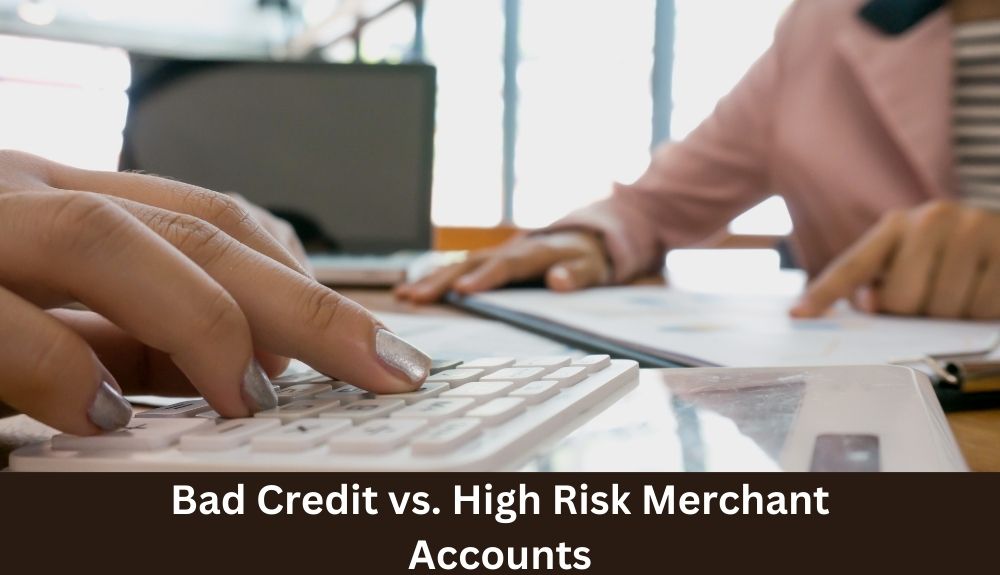
When it comes to merchant accounts, businesses with bad credit may find themselves facing additional challenges. It’s important to understand the difference between bad credit merchant accounts and high-risk merchant accounts, as they cater to distinct situations.
Factors that Determine Business Category:
1. Credit History: Bad credit merchant accounts primarily focus on businesses with poor credit scores or a history of financial difficulties. In contrast, high-risk merchant accounts consider factors beyond credit, such as industry volatility or regulatory limitations.
2. Nature of Business: Bad credit merchant accounts specifically target businesses with less-than-perfect credit, regardless of their industry. On the other hand, high-risk merchant accounts apply to businesses operating in industries classified as high-risk due to chargeback rates, legal restrictions, or reputational concerns.
3. Risk Assessment: Bad credit accounts assess the creditworthiness of the business owner, while high-risk accounts evaluate the risk associated with the business itself.
Different Criteria, Similar Challenges:
Both bad credit and high-risk merchant accounts share certain challenges, such as limited options for payment processors and potentially higher processing fees. However, bad credit merchant accounts primarily focus on creditworthiness, while high-risk accounts consider diverse risk factors related to the business and industry.
Understanding the distinction between bad credit and high-risk merchant accounts is essential to finding the most suitable payment processing solution for your business. By identifying your specific needs and the factors impacting your merchant account eligibility, you can make informed decisions to help your business thrive.


